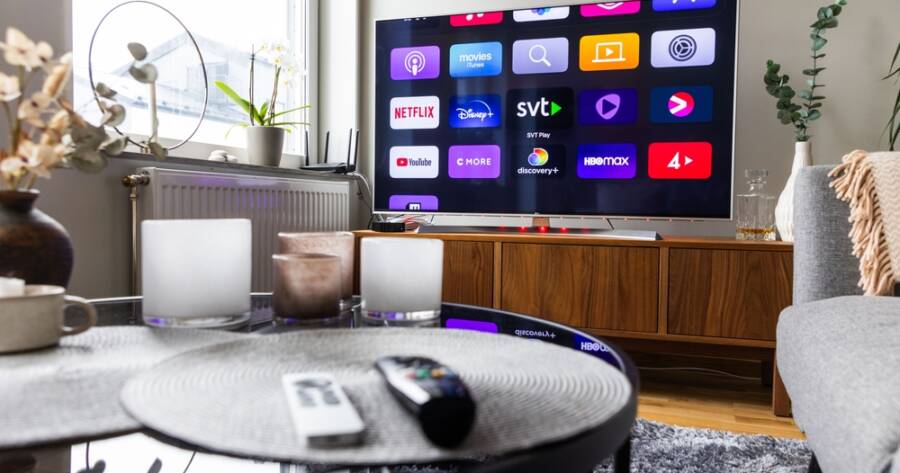Streaming services have revolutionized how we consume entertainment, offering easy access to countless hours of movies, shows, and documentaries. While streaming can be a convenient way to unwind, excessive consumption comes with hidden costs. From time lost to mental health effects, it’s important to recognize when streaming is taking over and how you can regain control of your day.
Time Wasted: The Unseen Hours of Your Day
One of the most significant costs of excessive streaming is the time spent in front of screens. On average, Americans stream approximately 44 hours of content per week. While it may seem like a harmless way to relax, these hours often replace time that could be spent on more productive or meaningful activities, such as exercising, socializing, or pursuing hobbies.
A day filled with back-to-back streaming sessions can easily slip away without you realizing it. The addictive nature of cliffhangers and auto-play features on many streaming platforms only adds to this problem. When you’re watching episode after episode, you’re not only consuming content—you’re losing valuable time that could be better spent. Over time, this can lead to a pattern of wasted hours that adds up to days or even weeks, ultimately affecting other aspects of your life.
Physical Health Concerns: A Sedentary Lifestyle
Another hidden cost of excessive streaming is its impact on your physical health. Long hours spent sitting on the couch or in front of a screen can lead to a sedentary lifestyle, which is linked to various health problems. These include weight gain, poor posture, back and neck pain, and even more serious conditions like heart disease or diabetes.
When you’re engrossed in a show, it’s easy to forget about the importance of movement. Staying glued to a screen for hours means missing out on the opportunity to get up, stretch, or engage in physical activity. This lack of movement can affect your overall well-being, leading to decreased energy levels and lower fitness.
To combat this, consider setting time limits or using a timer to remind yourself to take breaks. Stand up, stretch, and walk around during episodes to help keep your body active. Alternatively, try balancing your streaming sessions with activities like yoga, walking, or a workout to break up the sedentary time.
Mental Health Impact: The Emotional Toll of Streaming
While streaming is often seen as a way to escape from daily stress, excessive consumption can take a toll on mental health. Studies have shown that spending too much time watching TV shows or films can increase feelings of loneliness, anxiety, and depression. The constant exposure to idealized images, dramatic plots, and unrealistic lifestyles can leave you feeling dissatisfied with your own life.
Moreover, mindlessly scrolling through streaming platforms or watching content on auto-play can contribute to feelings of mental fatigue and even burnout. The overstimulation from constant media exposure can prevent your brain from fully relaxing, making it harder to unwind after a long day. Additionally, spending too much time on screens can interfere with sleep patterns, leading to poor rest and, ultimately, lower mental well-being.
To counteract these effects, it’s essential to find a balance. Set limits on how much time you spend streaming each day, and try to incorporate other forms of entertainment or relaxation into your routine. Whether it’s reading, journaling, or meditating, engaging in activities that don’t rely on screens can help you maintain better mental health.
Social Isolation: Losing Connections to the Real World
Excessive streaming can also lead to social isolation, especially if it becomes your primary form of entertainment or relaxation. Spending hours watching TV can reduce the time you spend with family and friends, leading to a sense of disconnection. Relationships may suffer when time spent interacting with loved ones is replaced by solitary viewing sessions.
In some cases, this can create a sense of isolation, as people who stream excessively might feel less inclined to make plans or socialize. The longer you spend in front of a screen, the more likely it is that you’ll miss out on important face-to-face interactions or social events, ultimately weakening your connections to others.
To remedy this, make a conscious effort to schedule time with friends or family outside of your streaming habits. Consider turning off the TV and engaging in an activity that encourages conversation or shared experiences, like cooking together or going for a walk. Reclaiming this time helps strengthen relationships and prevents feelings of isolation.
Reclaim Your Day: Practical Tips for Reducing Excessive Streaming
To start taking control of your streaming habits, it’s important to set boundaries and stick to them. Begin by setting time limits on your streaming sessions, whether it’s one episode per day or a set number of hours per week. Many streaming platforms now offer settings that can track your usage or limit how long you watch.
Another effective strategy is to plan your screen time around other daily activities. For instance, make a habit of exercising before or after your streaming sessions. Alternatively, break up your binge-watching with breaks for other hobbies, like reading, cooking, or spending time outdoors.
By creating a healthy balance between screen time and other activities, you can enjoy your favorite shows without letting them consume your entire day. This will not only benefit your physical and mental health but also allow you to make time for the relationships and activities that truly matter.
Take Back Control and Live More Mindfully
The hidden costs of excessive streaming can have a significant impact on your life, from wasted time and negative physical health effects to mental fatigue and social isolation. By recognizing these costs and making intentional changes to your daily habits, you can reclaim your time and live a more balanced, fulfilling life.

